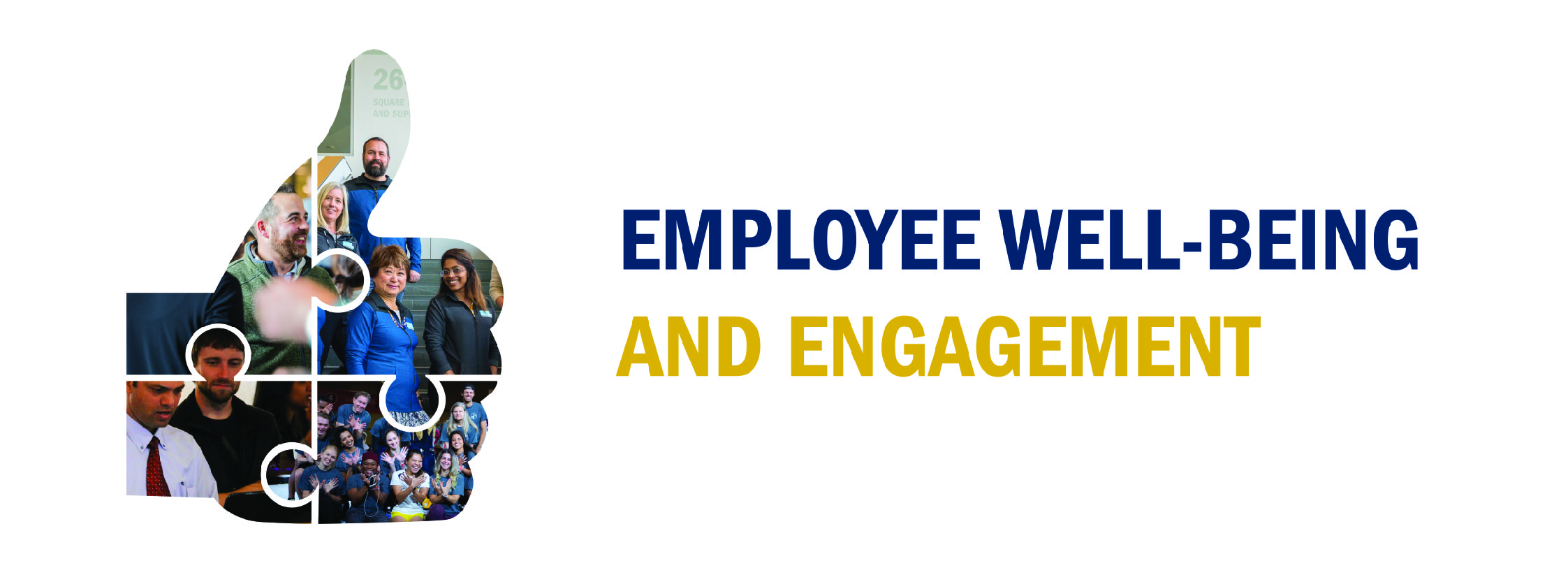If you’ve been reading the announcements in Communiqué and have visited the Employee Well-Being and Engagement website, you probably know that we are looking for you to define Humber’s Employee Well-Being and Engagement Framework. The first step towards this outcome is to vote on the suggested Dimensions and Drivers. Since your vote and views matter, we will be sharing more information over the next two weeks that will assist in preparing you to confidently choose those Dimensions and Drivers that matter to you.
Look out for more in this series entitled: My Views, My Vote. We will feature different Dimensions and Drivers and you will hear directly from your fellow employees in upcoming Employee News Network (ENN) videos.
This week’s discussion: Well-Being group ‘Work Well-Being’ and there are two dimensions under this group, Personal Effectiveness and Meaningful Work.
Understanding Personal Effectiveness
We have defined Personal Effectiveness as “Programs that enable employees to master their careers, achieve personal/professional developmental goals and receive the support that helps them to become more effective.”
Personal Effectiveness is about making use of both personal and professional resources to enable you to achieve your goals. To increase personal effectiveness one needs to understand how effective they currently are and what changes they want to make and how.
The four drivers of Personal Effectiveness are identified as:
- Growth and Development
- Coaching and Mentoring
- Inspire and Motivate
- Self-awareness and Reflection
Here are some examples of what many organizations do related to personal effectiveness; offer organization-wide training on personal effectiveness (managing stress, organizational skills, personal accountability, goal setting), work within the team/unit to identify and prioritize projects, a strong culture of coaching and mentoring.
Understanding Meaningful Work
We have defined Meaningful work as “Employees work have significance and purpose. It contributes to team/organizational goals and gives a sense of accomplishment and personal satisfaction.”
Our work matters. Our work has important implications for our personal identity, and much of our self-esteem derives from our work. Our work can satisfy the need for significance, the opportunity to make a purposeful contribution while connecting with others. Meaningful work leads directly to higher levels of engagement, but it must be satisfying, reflect the employee's interest, use their skills, develop potential and allow them to reach their personal objectives.
The three drivers of Meaningful Work are identified as:
- Quality of Work
- Empowerment
- Direction & Purpose
Here are some examples of what many organizations do related to meaningful work; employees feel and demonstrate ownership and commitment by being able to make decisions, be responsible, be measured by results, and be recognized as thoughtful, contributing individuals, rather than a pair of hands doing what others say. Employees see how their jobs fit in with and support the organization’s value and purpose.
For more information about these dimensions and to view other proposed dimensions, please visit humber.ca/hroe/oe. Don’t miss the next Well-Being group for discussion; Social/Environmental Well-Being.
Want to participate in the Employee Well-being and Engagement Initiative?
Register to attend an Information Session and voting. Click here to register.

